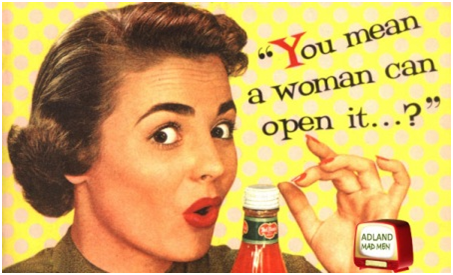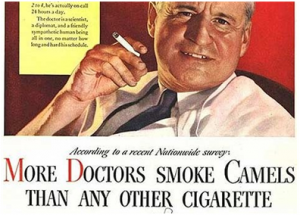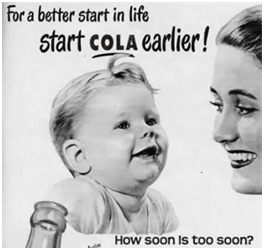
Lesson 6: Political Correctness
In this lesson, we’ll be taking a brief look at the importance of political correctness in business writing.
Objectives:
- To define political correctness.
- To point out the importance of political correctness in business writing.
- To enumerate the different ways in which you can ensure that your business documents are politically correct.
Quick Navigation through the Lesson 6:
- Does it discriminate against anyone?
- Does it presume any stereotypes to be true?
- Does it unreasonably exclude anyone?
- Is it honest?
Our world is a globalized and progressive one—when we make business documents we can count on people of different walks of life reading them or at least being in a position to criticize them (in the case of advertisements). Because of this, it is very important that our business documents are always politically correct. In this lesson, we’ll be discussing what this means, why it’s important and how it can be achieved.
Political correctness means thinking and exhibiting language which makes room for progressive ideas regarding race, political alignment, gender, socioeconomic status, religion and disabilities—meaning one draws conclusions on the premise that all people are equal. Writing or speaking in a politically correct manner means not delivering a statement which presumes stereotypes or various unfounded generalizations (e.g. women can’t drive) to be false.
It is very important to be politically correct in business writing because if we aren’t,this alienates the people we’re communicating with. This also questions our credibility and may jeopardize our business in general. Below are a couple of guide questions which will help you check all the documents which you write or approve for political correctness.
1. Does it discriminate against anyone?
One of the big questions to ask yourself when reading your document is does it discriminate against anyone? Are you saying anything unwarrantedly derogatory about people from a certain gender, race or socioeconomic class, whether overtly or otherwise?
Below are two statements which covertly display discrimination:
a. We’re extending this invitation to everyone—we’ve generously allowed the inclusion of women this year, in an effort to raise more funds.
b. Only ladies and gentlemen in formal wear are allowed in the establishment; all negroes kindly wait outside.
The first statement discriminates against women because even if it seems glad in its proclamation that women are invited to the event, it also says that women shouldn’t normally be invited to such a grand event. Furthermore, it presumes that women are frivolous with money—thus, inviting them is more a financial move than a progressive one.
The second one discriminates against Africans or black people—first of all, it uses the term negroes which is no longer acceptable in society (except when the blacks call themselves this, in which case it is fine—the politically correct term is Africans, African-Americans [when applicable, of course] or blacks) and secondly, it assumes that black people cannot afford formal wear or else that they aren’t welcome in an establishment that requires formal wear.
Both of these statements are unacceptable because they discriminate against a certain demographic, albeit in a passive-aggressive manner. Below are examples of ways to re-state these sentences:
c. This event is open to all our stockholders and their families—the more the merrier!
d. Kindly note that our establishment requires all our customers to be dressed formally. Thank you!
These revisions of the statements are inclusive, non-offensive and non-discriminatory.
2. Does it presume any stereotypes to be true?
Another thing which is considered politically incorrect is assuming stereotypes to be true. While you may not directly be insulting anyone, you might be doing it by assuming that a certain over-generalized or false premise is true. Take the ad below, which was released by the Del Monte ketchup company in partnership with Alcoa Aluminum manufacturers in the 50s.

The ad, which is reminiscent of a less progressive time when society assumed that women were less than men and that all they could (and were supposed to) do was cook and raise children. The tag line was meant to advertise the easy-to-open bottle cap, assuming that women were incapable of performing difficult or complicated tasks.
While this didn’t cause much outrage 60+ years ago, running the same advertisement now in the age of information where all people know that the differences between men and women are not inequalities in competence, this kind of ad would be outlawed and would cause outrage and protests throughout the market.
3. Does it unreasonably exclude anyone?
If you’re writing about a drug and it excludes people with hypertension from using it, then this is fine because the exclusion is warranted. However if you’re writing about a new partnership but ask your partner that all employees who are homosexual in preference are removed from the team, then this is considered unreasonable and discriminatory because it doesn’t evaluate the employee based on performance but based on sexual preference, which has little or nothing to do with their ability to get the job done.
4. Is it honest?
 The most controversial thing about the advertising industry in the 50s and 60s is that they lied a lot—or at least kept a substantial part of the truth from the customers. It is important for us to always be transparent with our co-workers, clients, customers, subordinates and bosses. Before you write anything down in a report, proposal or advert, make sure that you’re telling the truth.
The most controversial thing about the advertising industry in the 50s and 60s is that they lied a lot—or at least kept a substantial part of the truth from the customers. It is important for us to always be transparent with our co-workers, clients, customers, subordinates and bosses. Before you write anything down in a report, proposal or advert, make sure that you’re telling the truth.
Within this paragraph are a couple of old ads which kept the truth from their customers or at least implied a “truth” which was contrary to the reality. To the right is an ad released by Camel cigarettes in the 60s which meant to combat studies which were coming out, showing that cigarettes did cause lung cancer. While it didn’t overtly state that smoking cigarettes are good for you, the message was implied by saying that doctors who are the top-billed health officials are smoking, thus leaving consumers with the impression that a) it’s okay to smoke and b) Camels are a healthier brand than other cigarettes.
 To the left is an ad which was released by Coke in the mid-forties. The ad was a result of a study that showed most of Coke’s consumers were children. Encouraged by this, the company disregarded research indicating otherwise and tried to get parents to encourage their children to drink cola at an earlier age. In the then-absence of significant research or importance given to healthcare, the ad was run. However, now that we know a lot of things about health and how products like Coca Cola impact our health, we know that this ad is promoting a falsity.
To the left is an ad which was released by Coke in the mid-forties. The ad was a result of a study that showed most of Coke’s consumers were children. Encouraged by this, the company disregarded research indicating otherwise and tried to get parents to encourage their children to drink cola at an earlier age. In the then-absence of significant research or importance given to healthcare, the ad was run. However, now that we know a lot of things about health and how products like Coca Cola impact our health, we know that this ad is promoting a falsity.
It’s very important that when we write our business documents that we’re a hundred percent honest—this is not to say that we shouldn’t carefully choose the information we write down (e.g. it’s important to respect confidentiality clauses) but that when we do write something down, it should be the truth.
In this lesson, we were able to study political correctness. We established that when writing business documents, it’s very important for us to retain our credibility and integrity by making sure that what we write is inoffensive, correctly phrased and contains authentic information. We were also able to list down a few guide questions which help us achieve this in our business writing.
Next we’ll be heading into the second part of this lesson: Types of Business Documents. We’ll be looking at the different kinds of business documents which you might encounter. For each lesson we’ll be looking at the proper format and language to use as well as shortly discussing what the goal of each of these documents wants to fulfill. Keep reading and you’ll be writing excellent business documents in no time!
 + 1-888-827-0150
+ 1-888-827-0150 + 44-20-3006-2750
+ 44-20-3006-2750










